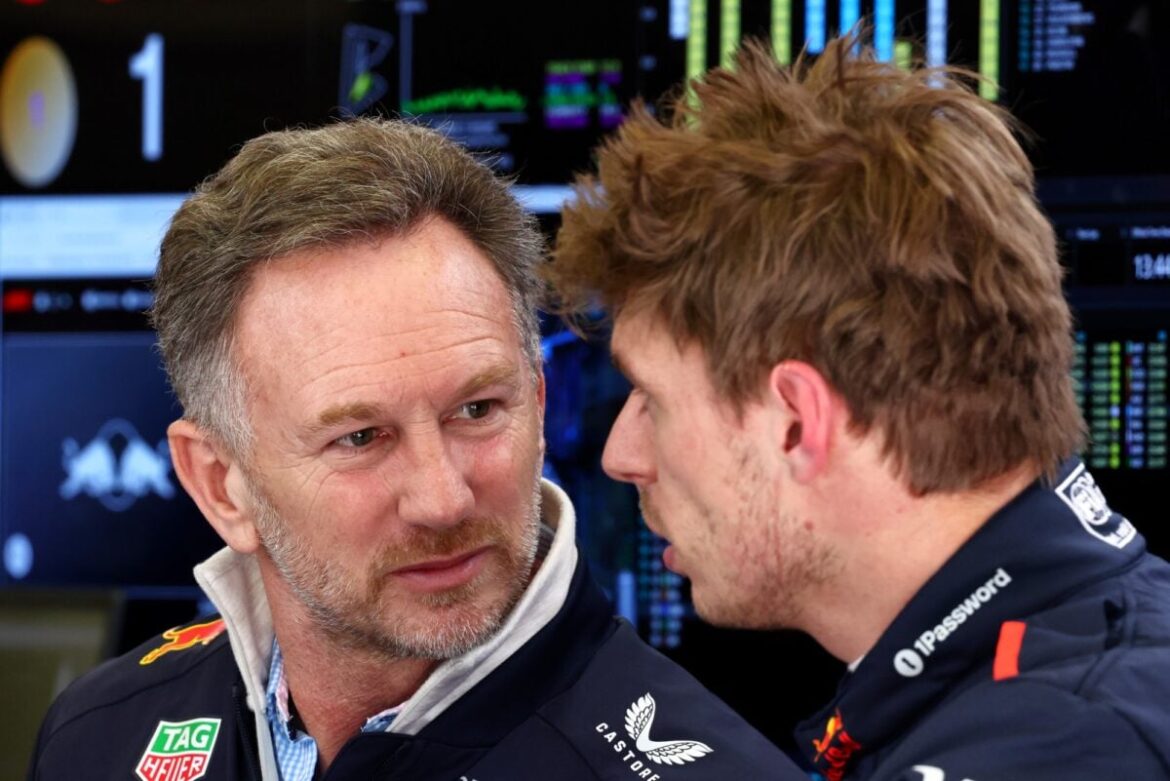Christian Horner’s Departure from Red Bull Racing: A Shift in Dynamics
Christian Horner’s recent departure from Red Bull Racing has stirred significant conversation in the world of Formula 1, particularly regarding the team’s reliance on star driver Max Verstappen. In the days leading up to his exit, Horner voiced strong concerns about the team’s over-dependence on Verstappen, emphasizing the importance of preparing for the future. His dismissal came amid a tumultuous environment and rampant speculation surrounding the future of the four-time Formula 1 champion.
A Candid Reflection on Team Dynamics
Before his departure, Horner acknowledged Verstappen’s vital role within the team. "Max has been a key part of our team for nearly a decade," he remarked to the media shortly before his exit. However, he also warned that a time would come—whether next year or further down the line—when the team would have to face the reality of racing without him. Horner’s foresight indicates a need for strategic planning and investment in new talent to ensure the team’s longevity beyond its current star.
Horner stressed the importance of looking ahead, stating, "The team must always keep that in mind, continue to look forward, and invest in the future." With the uncertainty surrounding Verstappen’s tenure at Red Bull, it becomes increasingly critical for the organization to scout new talent. He highlighted efforts to bring in fresh prospects, mentioning Arvid Lindblad’s participation in the first practice session of the British Grand Prix as an example of nurturing the next generation of drivers.
The Impact of Departures Within the Team
Horner’s exit is not an isolated incident; it coincides with the departure of other significant figures within Red Bull, including Adrian Newey and Jonathan Wheatley, who are also leaving the team in 2024. This wave of departures raises questions about the stability and future direction of Red Bull Racing. With these high-profile exits, the team faces a critical juncture where its leadership and strategy could drastically change.
At the same time, rumors have emerged regarding Mercedes’ potential interest in acquiring Verstappen, further adding to the uncertainty surrounding his future with Red Bull. The speculation about Verstappen’s next move only heightens the tension within the team and raises questions about how it will adapt to these changes.
Tensions Behind the Scenes
Compounding the situation, it has been suggested that Verstappen’s inner circle may have played a role in Horner’s exit. Martin Brundle, a former Formula 1 driver and current commentator for Sky Sports F1, indicated that tensions between Horner and Jos Verstappen, Max’s father, might have been pivotal. Brundle noted, "It’s absolutely clear that the Verstappen clan has been throwing grenades behind the scenes for months… and some have exploded."
He further elaborated that Jos Verstappen had made it known on several occasions that he believed Horner should not lead the team. This insight sheds light on the complexities within the team dynamics and how personal relationships can impact professional environments, particularly in high-stakes sports like Formula 1.
The Uncertain Future of Verstappen and Red Bull Racing
Given the current landscape, the future of Verstappen at Red Bull seems increasingly precarious. This uncertainty starkly contrasts with the stability that Horner sought to cultivate before his departure. The interplay of new leadership, potential new drivers, and the ongoing rumors surrounding Verstappen’s future creates a volatile environment for the team.
As Red Bull Racing navigates this period of transition, it must focus on maintaining its competitive edge in Formula 1. This includes not only scouting and developing new talent but also ensuring that the team’s core values and strategies align with the evolving dynamics of the sport.
The Importance of Strategic Planning
In motorsport, change is a constant, and teams must adapt to survive. Horner’s comments serve as a reminder that while star drivers like Verstappen can lead a team to success, an over-reliance on any single individual can leave a team vulnerable to significant challenges. Red Bull Racing must take proactive steps to build a robust team structure that can withstand the pressures of the sport, including potential departures of key drivers and personnel.
Investing in up-and-coming talent is essential for ensuring the team’s future viability. By focusing on young drivers and creating a pipeline of talent, Red Bull can safeguard its position in the competitive landscape of Formula 1. The current environment necessitates a long-term vision that prioritizes sustainability and resilience.
The Role of Leadership in Team Success
Team dynamics in Formula 1 are heavily influenced by leadership. Christian Horner’s tenure as team principal was marked by a strong vision and a clear direction. His departure opens the door for new leadership that could bring fresh perspectives but also comes with its own set of challenges.
As Red Bull Racing looks for a new team principal, it will be crucial to find someone who can unify the team, foster a positive culture, and maintain competitive performance. The next leader will need to navigate the complexities of team dynamics while ensuring that the strategic vision aligns with the goals of the organization.
Conclusion
The recent developments at Red Bull Racing illustrate the intricate balance of talent, leadership, and strategic foresight required in Formula 1. As the team faces an uncertain future, it must prioritize investment in new talent and adapt to the changing dynamics within the sport. The departure of Christian Horner serves as a pivotal moment for Red Bull, marking the beginning of a new chapter that will significantly impact its trajectory in the world of motorsport.
In these times of transition, the focus on building a sustainable and resilient team will be paramount. As Red Bull Racing moves forward, it must embrace the challenges ahead while remaining committed to its legacy of excellence in Formula 1.
